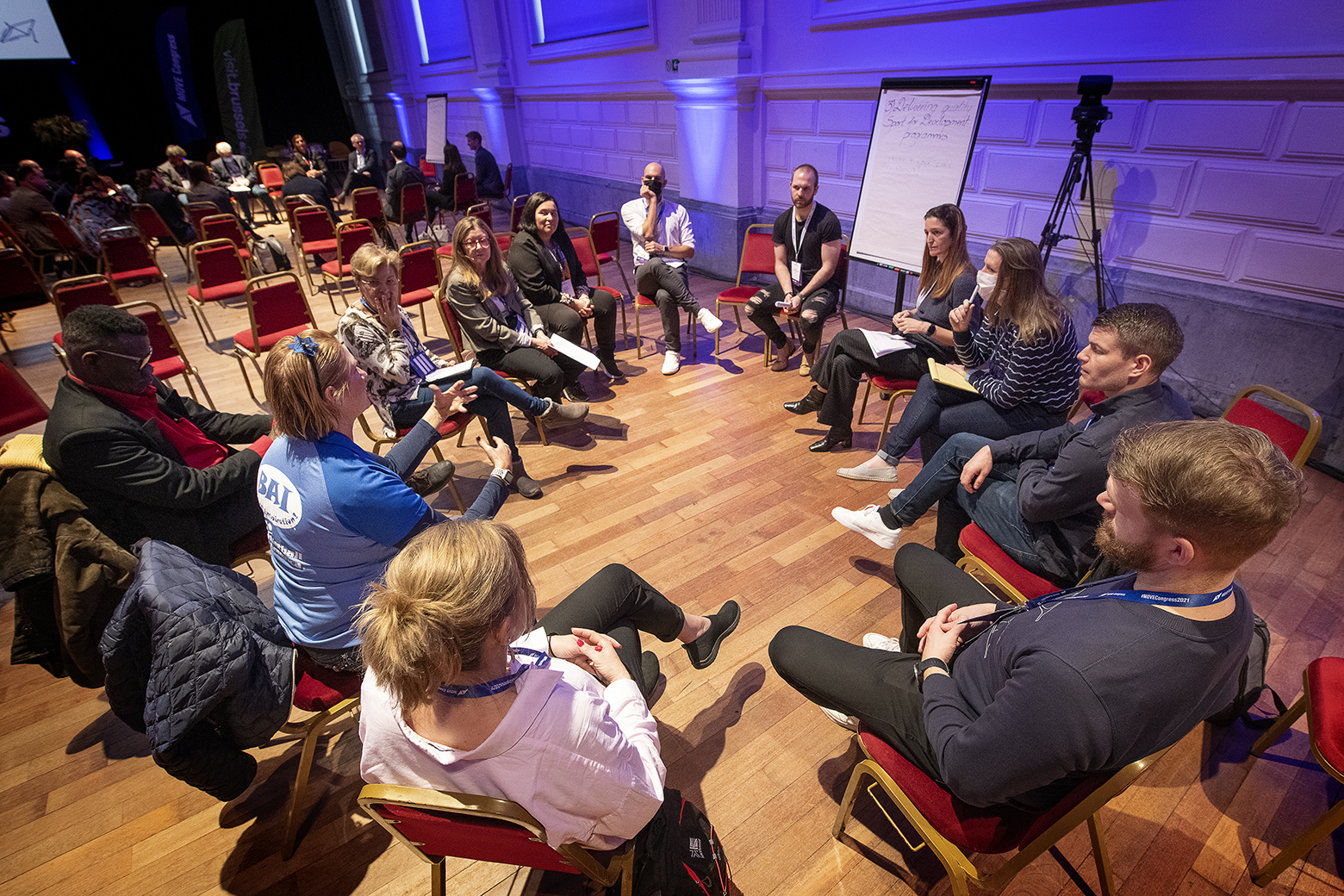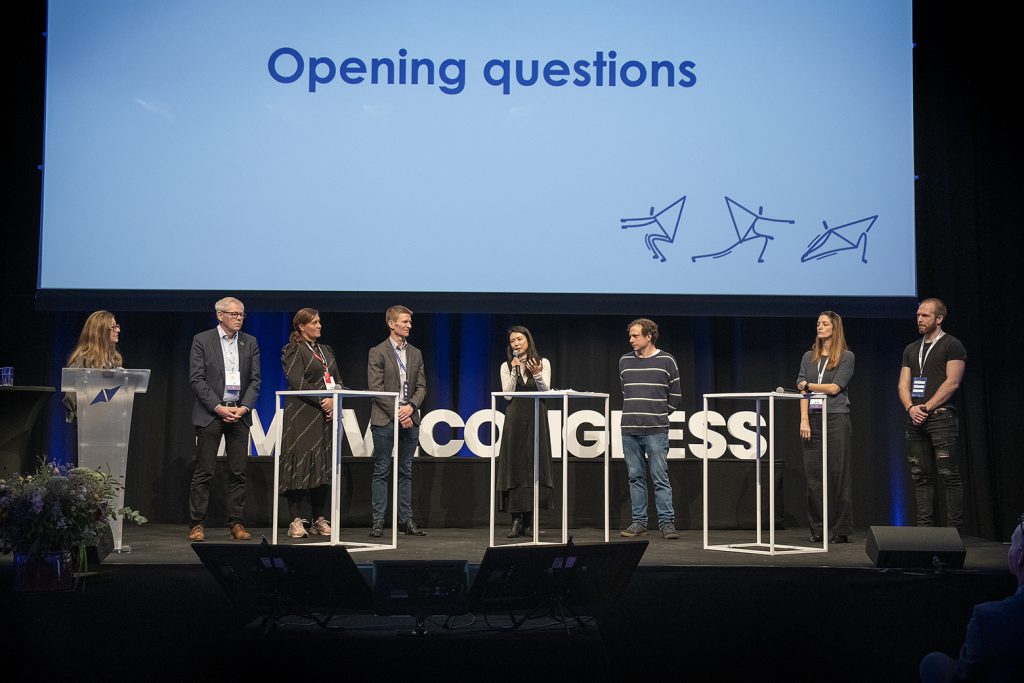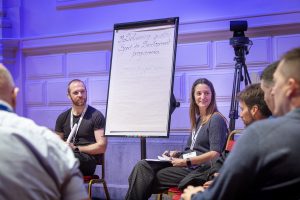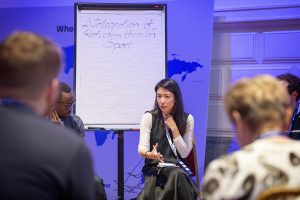
“We have to find where the circles are overlapping”: How to make the first MOVE in partnership building
The ‘Mastering partnerships after Covid-19’ MOVE Congress masterclass was held on Friday 19 November and shed light on different aspects of creating and succeeding in partnerships with organisations of different sizes and profiles, with a focus on overcoming the most common collaboration challenges that every organisation can face. The participants gained knowledge on how to master partnerships during and after the pandemic by sharing their experiences among high-profile partner pairs and by taking part in practical “coalition-building” exercises.
Helen Vost from Youth Sport Trust International and Caroline Jessop from Clear Meetings introduced the workshop panel, which included Niels Lund from Novo Nordisk, Mette Holm Rod from DGI National Performance Team, masterclass coordinator Jacob Schouenborg from ISCA, Megumi Aoyama from UNHCR, Paul Hunt from sportanddev.org, Elena Yanez Marin from Laureus Sport for Good and David Given-Sjölander from Swedish Postcode Foundation.

The unique features of their partnerships and the roles of each organisation were highlighted in an open discussion that invited audience participation. Megumi Aoyama advised that an effective partnership should be realistic and that both partners should have a clear idea of what they want to achieve. She pointed out that it takes time to find the right partner, that added value from both sides is important, and there should be two equal ways of engaging and mutual benefits.
Elena Yanez Marin and David Given-Sjölander considered the importance of determining what you want to achieve together, keeping in mind that it takes time to build the right partnership and that both trust and learning from each other is necessary.
Mette Holm Rod, who works on the Move For Fun project with Novo Nordisk and ISCA, underlined that “we came from diverse backgrounds, all organisations are different and we have to find where the circles are overlapping”.
The panel was followed by discussion in groups to help the participants understand how to overcome the most common challenges in collaboration. In the three groups, all of the participants had a chance to ask the panellists about partnership-related issues.

During the second part of the workshop participants were asked to work on the idea of “grand coalition” building in 3-4 groups and try to make the first MOVE in one of three areas:
1) Tackling childhood inactivity, based on an example from Novo Nordisk/DGI/ISCA
2) Delivering quality for development programmes, using an example from Laureus/Swedish Postcode Foundation (pictured left)
3) Integration of Refugees through Sport, based on an example from Sportanddev/UNHCR (pictured below)
 They were asked questions such as:
They were asked questions such as:
WHO would you like to have in your grand coalition and WHY?
HOW would your coalition be able to address the problem?
WHAT change would you hope to make?
The answers were presented at the end of the session. Organisations such as ISCA, DGI, IOC, governmental bodies, schools and local sports clubs were seen as the perfect partners to have in the coalition because some of them operate on a high strategic level, coming with guidance and examples, whilst others are working at a practical level. The participants also noted the importance of engaging with the community base, motivated stakeholders, big patrons, a sustainable environment and building an online ecosystem.
Increasing physical activity, changing the language of physical activity, increasing healthcare budgets and teaching models to promote continued learning after school were seen as potential tools to address current challenges.
The main change the participants hoped to achieve is for kids and adults to be motivated to be physically active for their entire lives. Teaching physical literacy is one way of achieving this, they thought, and that teachers should take the lead in this education.
To break up the discussion with some MOVEment, volunteers from the Erasmus University College Brussels helped the participants stay active by dancing to a song that is used to get Belgian children moving – so the masterclass showcased not only the mastery of collaboration, but also of Moving People!
By Kristina Pekach, ISCA


